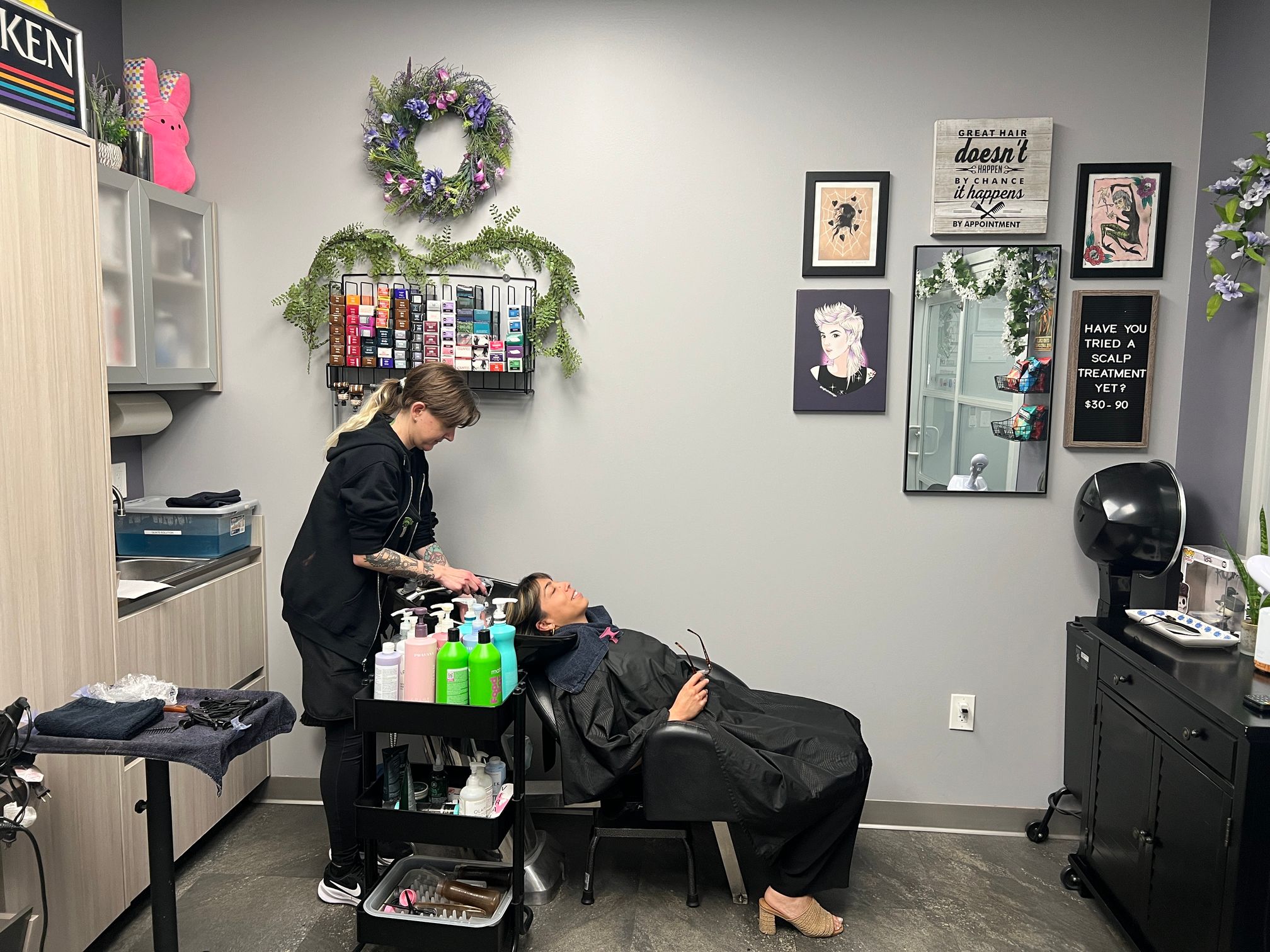(NEW YORK) — Lines shoot up and down, the composition a bright mesh of ragged, clashing red and green angles. The page elicits a range of emotions from eager spectators — in some, fearful eyes and small gasps, while in others, giddy light and satisfied smiles. No, this is not opening night at a modern art gallery. It’s 6 a.m., and it’s a new day for the stock market.
As the pandemic shut down old economies and fostered new ones, stock indices were suddenly thrown into as much flux as the notoriously mercurial cryptocurrencies. At the same time, being marooned indoors meant more time for professional investors and amateurs alike to frantically follow news of the market. This influx in new investors tuning in to the daily market opera was thanks to the growth of direct consumer investment technology platforms in recent years, displacing dependence on traditional brokerages to make investment decisions.
Victoria Case, the founder of Untitled_, believes that this is progress but that the financial accessibility of a large segment of the population remains unaddressed — women.
“We want more women involved in the investment process and more financial literacy access,” said Case, who recently completed the New York City-based On Deck accelerator.
Case aims to bring a portfolio of alternative investment options starting with blue-chip art shares. She believes that art investment is a space that is more approachable for new women investors though welcomes all interested investors.
“There’s a lot of gender issues around investing,” Case said. “Art is an investment that women can understand. There’s a natural passion and it’s easy to get involved.”
Women currently only lead 5% percent of the venture capital field, according to Inc.com. However, a 2020 study by McKinsey shares that female financial decision-makers and affluent consumers will represent $30 trillion of assets, making women an increasingly important demographic. The Bank of America U.S. Trust Survey found that women and millennials tend to be the most likely collectors of art, with women being twice as likely as men to have inherited art. Over 70% of high net worth investors in art did not consider art as part of a long-term wealth management strategy, an opportunity gap Untitled_Art can help address.
Case comes from a family tradition of art management, and her observations during the 2009 financial crash and working with professional investment advisors inspired her to explore the world of direct alternative investments. The art world also has unique barriers to entry that Case feels her experience can help navigate, along with general financial education challenges.

Victoria Case, founder of Untitled_, seeking to expand public investment options in alternative assets like art. [picture courtesy Victoria Case]
“I am excited to see how the opportunity evolves. As a country, we have not seen this type of barrier breakdown for entering the alternative space since the restructuring after ’08, but really since the Great Depression,” Case said.
The 2015 update to SEC policy allowed art fractional share offerings to be available to the public, no longer reserved for accredited high-income investors. Further updates in November 2020 to the Securities Act of 1933 allowed for a larger pool of qualified investors and redefined accredited investors under Reg D 506(c), which includes Untitled_’s offerings.
Case and her team are working on modules to address modern women investing strategies, with an eye out for new technologies and trends. She worries that unless women start paying more attention, “They’re going to miss the boat again and there are going to be bigger disparities between men and women.”
Untitled_ is currently bootstrapped building towards their beta release. While not yet generating revenue, they plan to make money through membership fees for community resource access, 2% investor fees, and a platform share on sold artworks. Yieldstreet and Masterworks are established competitors in the U.S. art investment space, but Case has her eyes set on international impact.
Cathryn Chen, a veteran investor and thought leader in market innovation, shares the sentiment and need for more accessible investment education. Previously she co-founded MoneyThink LA, an award-winning non-profit providing financial education to students nationally, and currently leads MarketX, a tech investment platform. She feels that for innovative financial companies to succeed, the public must first be educated on their opportunities, and has been also working on a new series on investment strategy she hopes will reach women and neglected communities.
She views strict SEC regulation as posing serious barriers to democratizing public investments in the past, given the large market cap requirements to participate, around $100,000 per entry. In order to make smaller purchases, there has to be significant volume.
“[Companies] were lobbying to get people more involved but didn’t get the needle moved, people had to go through a very stringent process to post,” Chen recounts.
She credits technology companies in enabling this volume and smaller ticket sizes by scaling up public participation. The slow yet steady increase in citizen participation, in turn, factored into continuing to loosen SEC regulations for citizen participation in other traditionally high-barrier investment formats, like the recent policy change to share in private equity funds.
Policy changes and public investor demands have also changed the culture towards more financial transparency. “Private companies usually don’t like to release information. That’s a good change in the market for investors,” shares Chen. This transparency has mutually fueled changes in financial news reporting, and become a core part of an increasingly democratized, crowd-powered investing ecosystem.
The emergence of any new system is not without its bumps. Robinhood, a digital brokerage platform that aims to democratize investment opportunities, was entrenched in a grassroots financial uprising earlier this year as activist investors rallied the Reddit community’s purchasing effort to push up the price of GameStop stock against big hedge fund’s short bets.
Robinhood filed for its IPO this summer and is currently valued at $32 Billion, with experts crediting its success to a radical focus on content, design, and quickly adapting to new customer interests.
Despite the ongoing opera of the 2021 economy, innovative efforts continue to be made to lower barriers for exploring diverse investing opportunities.


